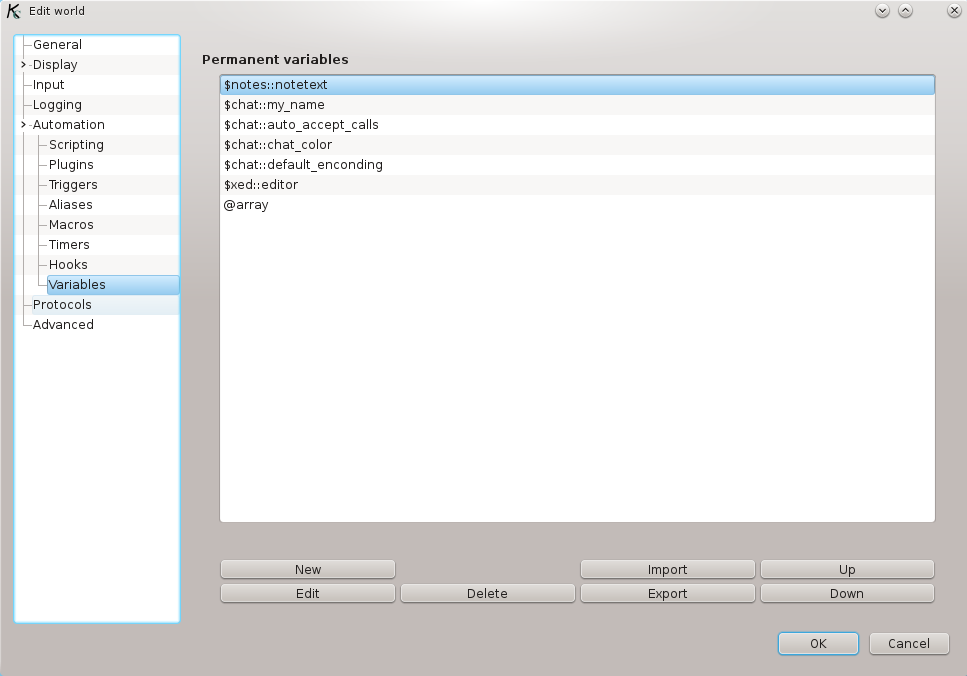7.4. Saving Variables Permanently
You can define variables for use in your Perl scripts. Since KildClient has a full-featured Perl interpreter, you can use all kinds of variables Perl supports (scalars, arrays, hashes, and even references to build complex data structures), and you use them just like you would in Perl.
However, when you close the World, the variables and their values are lost. However, it is often desirable to keep the values of variables across sessions, and KildClient has a mechanism for that.
A variable can be made permanent. All variables that are marked as permanent will be saved when you close the World, and will be reloaded from the saved values when the World is opened again later. This way, their values are saved across sessions.
To make a variable permanent, open the World Editor (see Chapter 4, Editing a World) and select the Variables section inside Automation.
There you will see a list of the variables that are set to be permanent:

To add a variable, click the Add button. A window will open for you to enter the name of the variable.
To make one or more variables temporary again, select them and press Delete. They will be removed from the list.
Finally, if you mispell the name of a variable, select it and press Edit to correct it.
You can also change the order of the variables with the Up and Down buttons. This is usefor for grouping similar variables together, but does not otherwise affect the saving of the variables.
7.4.1. Permanent Variables in the Command Line
It is possible to make a variable permanent from the command
line. To do that, use the $world->makepermanent
function, passing the name of the variable as the argument. Note that
since you must pass the name of the variable, you must use quotes, and
preferably single quotes so that the variable does not get
interpolated. For example, to make the variable
$kill_count permanent, run
$world->makepermanent('$kill_count'). Now when
you close the World, the value of $kill_count will
be saved, and when you reopen it later, the value will be
restored.
It is possible to make more than one variable permanent at one
time, just pass all their names as arguments to
$world->makepermanent.
If you want a variable to stop being permanent (that is, to
become temporary again), use the
$world->maketemporary function. It is called just
like makepermanent, and has the opposite
effect.
To get a list of the variables that are currently permanent, use
the function $world->listpermanent. This function
has no arguments, and prints all the names of the variables that are
permanent.